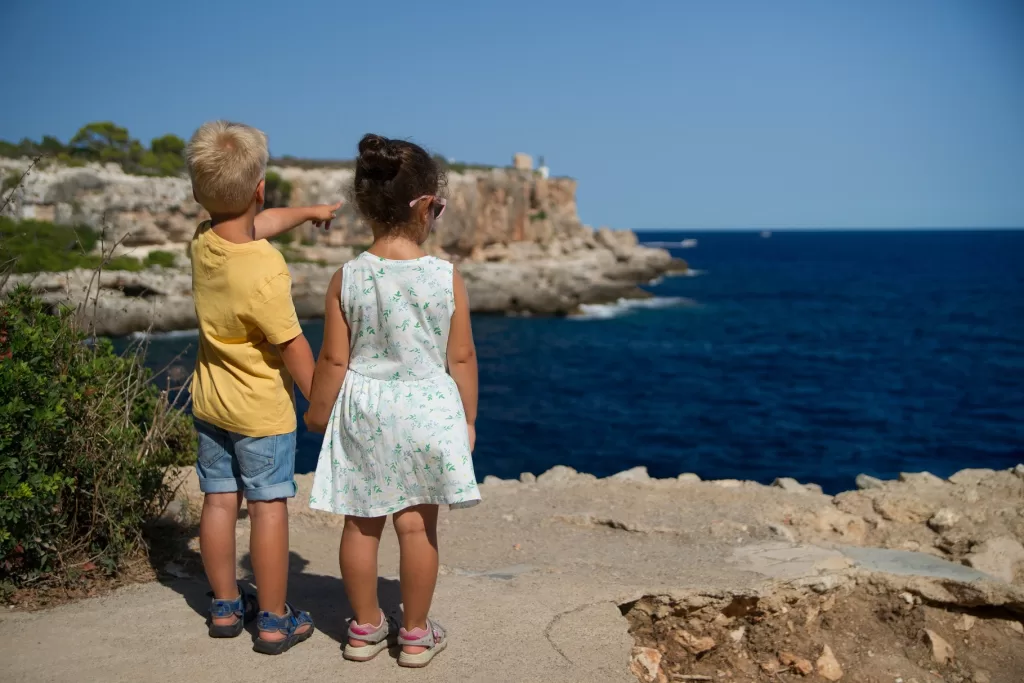Children of Addicts

‘Mummy looks very sad. She does not answer.’
‘Mama, please ask Daddy not to drink. Then he won’t be so sick.’
‘Mummy is crying silently.’
‘I have a lovely house and all kinds of toys. But why is there so much yelling and shouting at night?’
‘I cry when mummy or daddy beat me and scold me for no reason.’
‘I am scared. Daddy will hurt Mummy, and she will hurt me in return.’
Addiction – a family disease
Addiction affects children with the same intensity as adults, sometimes even more. An adult can choose a spouse. A child has neither a choice nor a method to choose. While adults may feel trapped, children are truly trapped in such situations.
To one’s eye, these children may seemingly look normal. They dress well, behave well, and sometimes are super achievers. But their eyes convey sadness beyond their years.
Impact on children
Addiction affects children with the same intensity as adults, sometimes even more.
A typical child is more spontaneous and carefree. Feels so bubbly, beautiful, playful, giving and receiving love easily.
In contrast, a child in an addict’s family is mostly withdrawn and tries not to rock the boat, hoping to be noticed sometimes.
These little angels are generally ignored as most of the attention in an addict’s family is on the addict. The child in such a situation is forever longing for attention. They become people pleasers.
Children of addicts have a higher incidence of emotional problems: anxiety, stress, depression, and school problems. There is also an increased incidence of associated medical problems in these children.
They live in a lot of fear. There is an absence of hugs and physical warmth. They hide their fears and hunger for warmth and love under a mask of self-control.
They often suffer from depression, which is a result of emotional deprivation. The non-addictive mother is usually busy trying to sort out matters, exhausted, and depressed. These children become pseudo-mature adults. They learn to behave and talk like grownups.
An abundance of negative feedback in the house means they have not been able to develop a healthy self. They thus suffer from low self-esteem.
What do the children learn in an addictive home?
They learn that it is not OK, to be honest in difficult situations. So, they learn to explain and downplay their problems, and out of fear, they learn to ignore real problems. They learn to lie—lying about their parents and situations and covering up the addiction in the family. Slowly, the child learns that lying is OK.
Children learn from what they see around them. In an alcoholic family, they see more guilt, aggression, denial, justifications and plenty of negative behaviour. When the father is not drunk, he showers the child with love and gifts. On the other hand, when the parent is drunk, he scares him with his behaviour. The child gets confused with conflicting emotional messages. The child learns that anger means violence and violence and love go hand in hand. Hence, he desperately lacks a good role model, which is essential to forming a healthy personality. Children of alcoholics learn not to talk, not to trust and not to feel.
Roles children play
Such children adopt specific adult roles. They become over-responsible, taking on roles and responsibilities in the family, which is usually meant for adults. They become good adjusters- highly adjusting to any situation without questioning. The placating child tries to anticipate and solve problems, even if it means he will get hurt.
The addiction crosses generations
According to research, a child of an alcoholic has four times the chance of becoming an addict. Their damaged childhood carries over to adulthood, and they have a high incidence of divorces and career problems.
These children need an enormous amount of understanding, comfort, care, information, and supportive psychological treatment to heal.
The road to recovery
Modern treatment facilities such as Hope Trust provide counselling for families of addicts and alcoholics, and their children are essential to the treatment of addictive families. At Hope Trust, the counsellors focus on clients’ children and help them initiate a healing process.
Click www.hopetrustindia.com for an online or in-person appointment with a therapist.